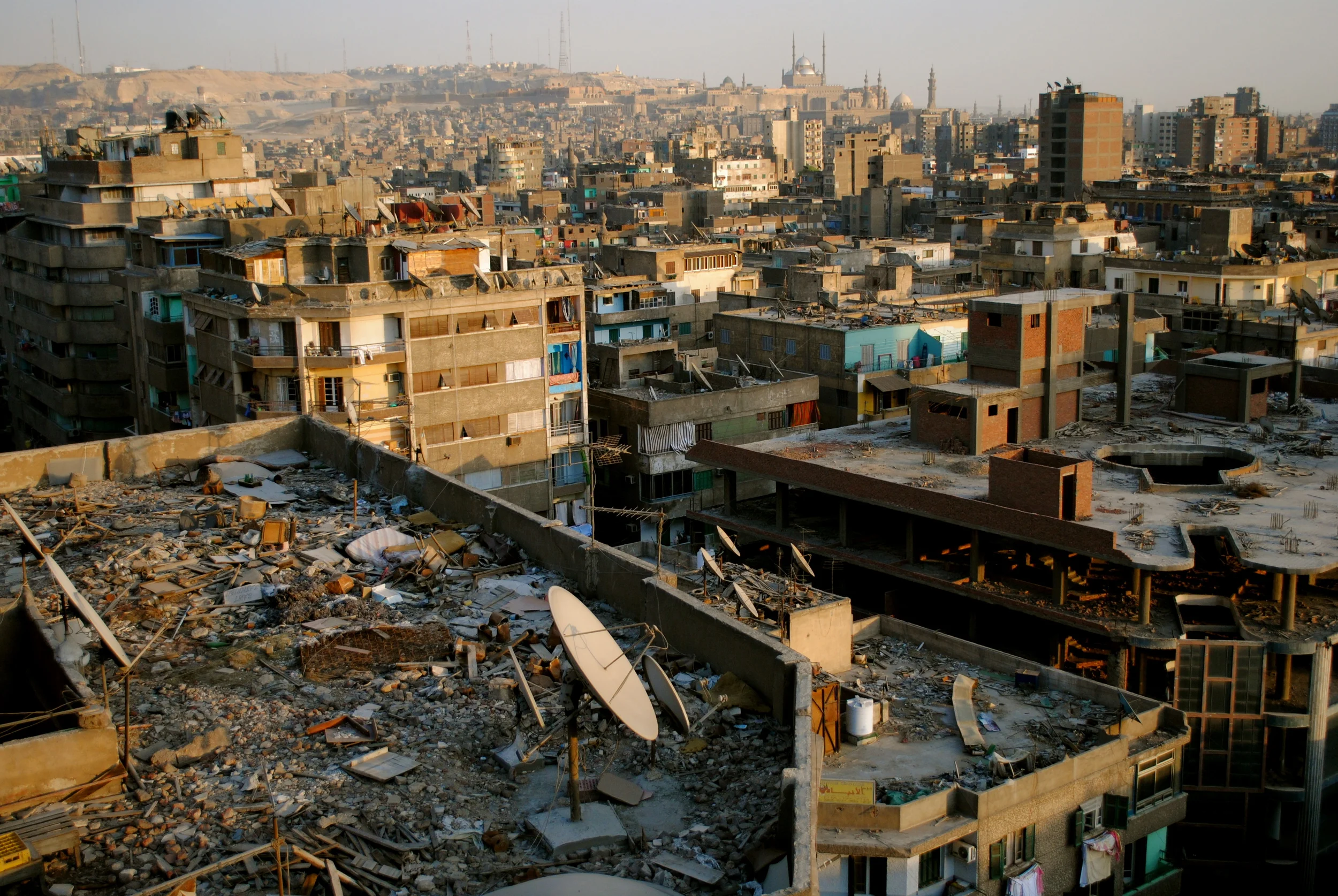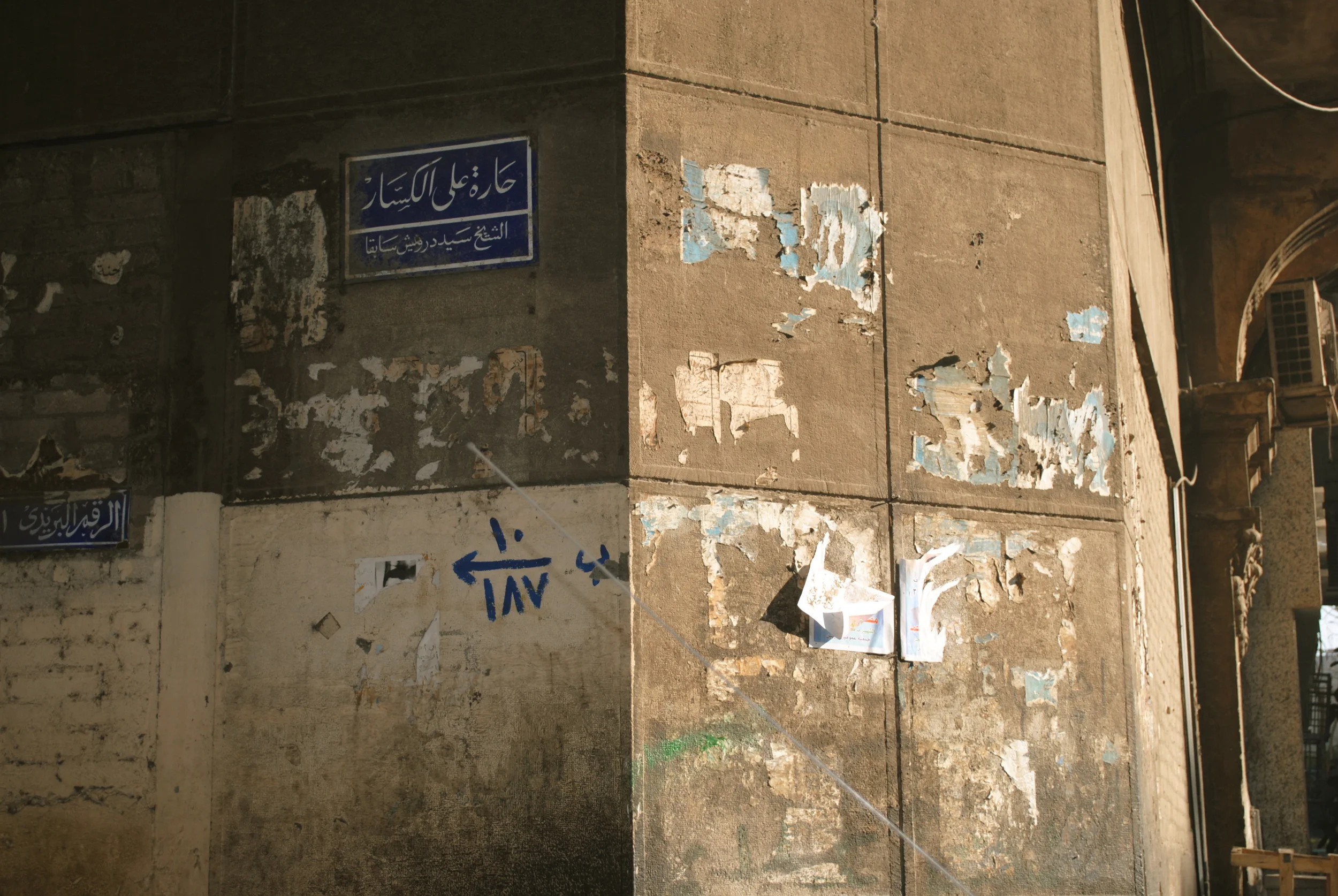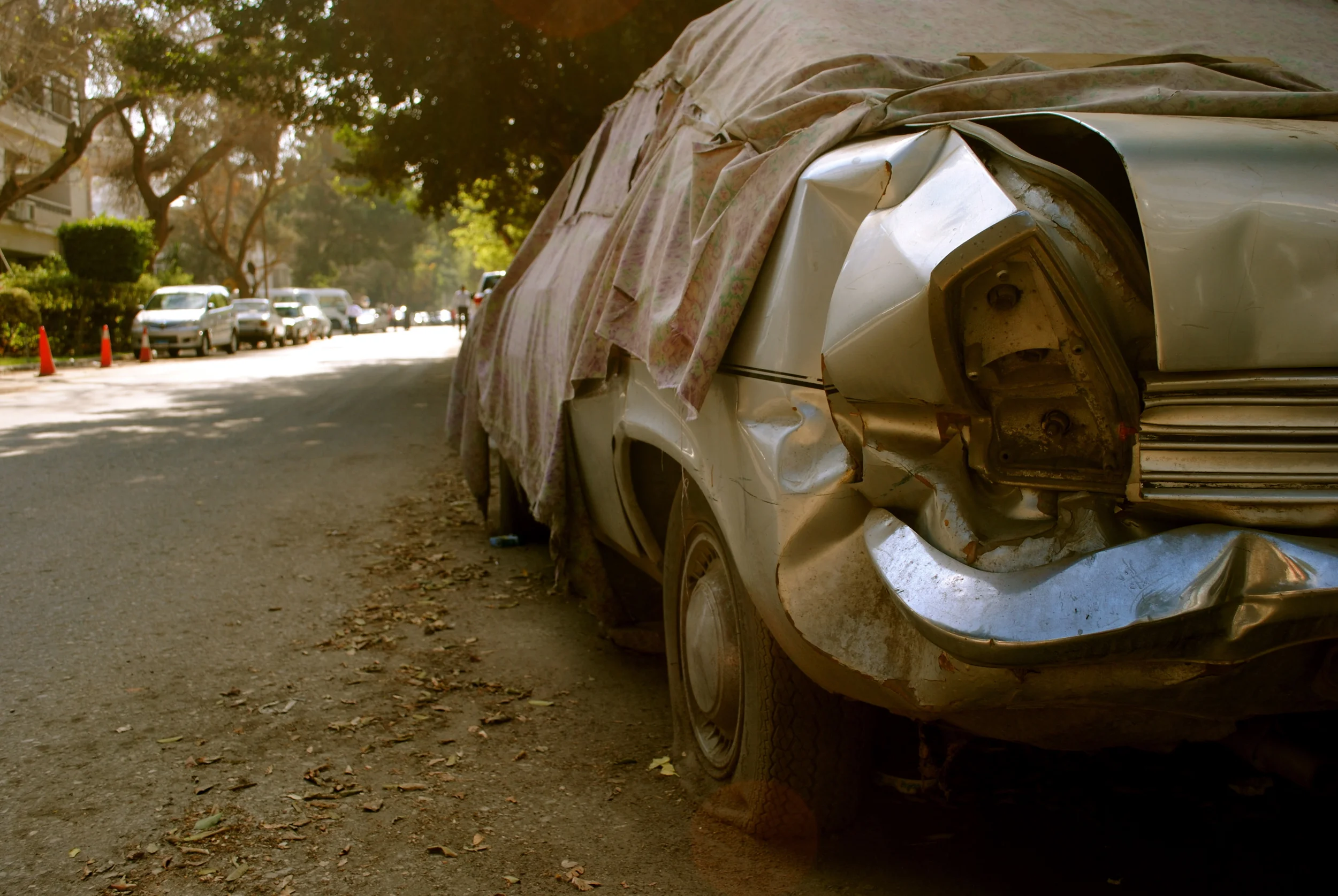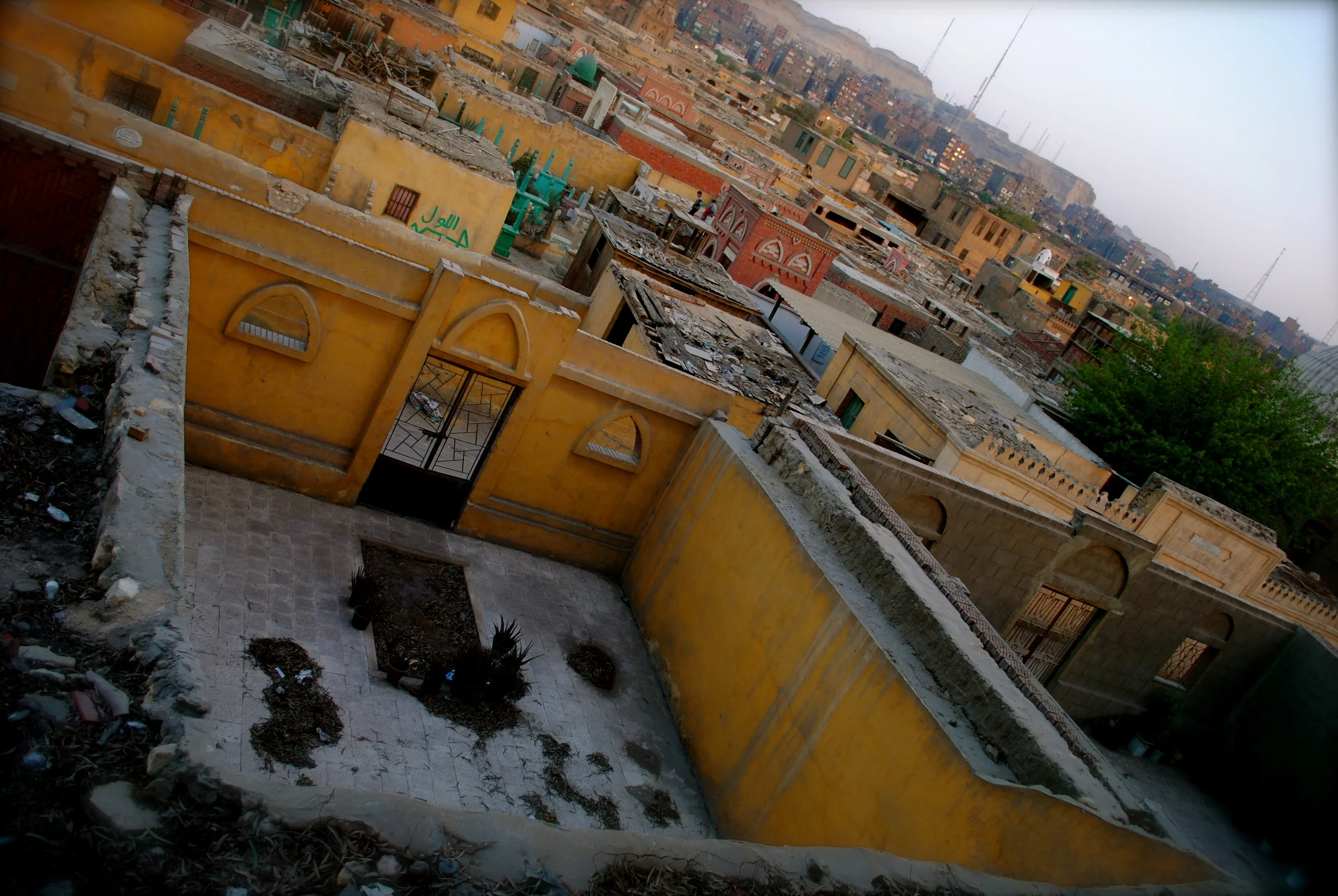tiny glimpses
he warned me not to expect a luxurious flat, though my new flatmate did promise “tiny glimpses of the nile” from our eleventh story window. here’s one glimpse of my tiny glimpse. between a dusty high-rise and a dusty low-rise, you can catch a car and a half’s length of river. inside our flat, there’s an empty aquarium in the corner and fake vines branching down the hallway. i like this place. before leaving me to unpack, sid writes the password to our internet on a piece of paper: “cairohome.” i have to type it in twice.
not seducing
i ask an american woman for some rules of thumb. how to dress in cairo? i’m not clear on what the scandalous parts are. “neck, shoulders, knees…” tori starts listing parts. i’ve brought roughly 25 shirts to this country, all of which looked practical, if not bland or dowdy, during packing. i can already tell I’ll be wearing the same five over and over again in cairo. later, i ask an egyptian man the same question. rules of thumb? karim offers one. “just as long as it’s not seducing.”
novice boat
“start something regular that involves other people,” advises a handbook for expats in egypt. the writer, a woman, urges “expat wives” to find a hobby, a club, a class. on a morning walk down the nile corniche, i stumble upon the cairo rowing club. the men on the dock seem to believe me when I claim to know how to row. there’s a novice boat going out on saturday morning, 6:30 am, for the “fourteen and under” rowers. i’m invited to join. paddling down the nile with adolescent boys: is this what a good expat wife would do? crash her son’s crew practice? and if I’m neither a spouse nor a mum, can I wear spandex?
abandoned mansion
“i’m right across from the abandoned mansion,” an american tells me, making the route to her house sound easy-peasy. “Oh!” i say: i was just near the abandoned mansion. Just today. i walk off into the neighborhood called garden city, buoyed by the belief that i am capable, getting capable in cairo (and already!) here’s the thing about garden city: it could also be called “borough of abandoned mansions.” the abandoned mansion of my late afternoon is not the abandoned mansion i’m now hunting. and by now, by night, what doesn’t look like an abandoned mansion? the embassies do. the homes of ambassadors do. the abandoned mansions sure do. “give your phone to someone,” the american by the abandoned mansion says. the idea is that she’ll tell the someone about the abandoned mansion in arabic, and he’ll point me there. here’s what happens instead: foreigner hands her phone to stranger. foreigner doesn’t know any arabic words so she doesn’t say any. stranger looks at the phone, then the foreigner, then the phone, then the foreigner who has begun to laugh and can’t seem to control the laughing because that’s what happens when giggles hit at inappropriate moments (ie. removing cell phone from the hand of a stranger who has no idea why it was placed there in the first place). all of which brings us no closer to the abandoned mansion.
upriver.
i’m on the hunt for egyptologists. americans who moved here for love of ancient egypt. “if you’re not digging up your mother’s backyard by the age of 12,” one american claims, “you’re not an egyptologist.” to my disappointment, none of these lifelong students of egypt are in cairo. “they’re all in upper egypt,” amira, who’s worked in egyptology for forty some years, tells me. there’s a globe in the corner of amira’s office, and it’d be nice to have a moment alone with that globe, because i thought “upper egypt” was precisely where we were. what i failed to take into account is the nile. the nile flows from south to north. one rule of ancient egypt still applies: to go upriver is to go south. to find the egyptologists, to meet the guys from chicago on digs, i’ll have to take a trip upstream.
storm cellar
dust storm? i wonder, stepping out into the quiet streets of dokki, awake way too early, awake with the call to prayer, the 4:49 chorus of old men dying. few people are out. i imagine neighbors in storm cellars, asleep where they took cover last night. they’ll creep out soon to identify buried cars, to smear the film off of house numbers and kitchen windows. i’d keep telling myself stories about last night’s storm but i notice all the car tarps: fabric cut and sowed in the exact dimensions of sedans. people in cairo cover cars like americans cover toasters. motorcycles, too, are draped in long floral curtains. nothing about the dust in dokki is out of the ordinary. in a few days, it will look ordinary. but today, when i find the entrance to the metro, the staircase leading down to a tunnel with gleaming floors and shiny chairs, i think, i could hang out down here. i think about washing my chalky hands and reading a book and enjoying the place underground where dust can’t cover us.
swaddling clothes.
i play it safe, in the beginning, and cover my head in a scarf. it’s pink. my swaddled face looks doughy. what i see in the full-length mirror reminds me of a little girl dressing up as mary for the school pageant. still, there’s comfort in over-precaution; i don’t know much about where i am. i certainly don’t know what the people who stare are thinking. when i’m all done swaddling, there’s extra fabric like a necktie under my chin. i stuff the surplus into my pants. that’s probably not how it’s supposed to work but it’ll have to. a ride on the women’s-only subway car is a good chance to assess. in the reflections of the subway windows, i can look at women and notice how they tuck and pin their scarves with little pearl pins. at one stop, a little boy boards our car with his grandmother. he looks up at her with a smile as the train pulls away, surrounded by women in every color scarf.
team work.
the novice boys ignore me, and i ignore the novice boys. we do our crunches and push-ups and erg workouts side by side without the boys acknowledging there’s a girl on the team, without the girl acknowledging she’s on a team. three hours and no eye contact: impressive, really. on the jog down the nile corniche, i fall into step behind one boy my speed, like a runner letting someone else break the wind. except there’s no wind at 6am on saturday morning in cairo. there are just people on the street and i’d rather run past them on the heels of this teammate whose face i’ve never seen and name i do not know, who is the latest of a series of strangers whose help i’ve taken without asking, hoping no one’s noticing that i cannot cross the street in cairo alone.
row slow.
it doesn’t take coach ahmed long to figure out that my rowing skills are rusty. we’re just a few choppy strokes away from the dock and the voice behind me accuses, “i think you don’t remember.” coach is right: there are many things about rowing i don’t remember. i plan, however, to remember them all on the nile. the first thing i remember on the nile is that i’ve never rowed with two oars. in high school, we always had one. two is different. two takes getting used to. “row slow!” coach yells. i’m taking the slide too fast. “focus! i need focus!” i see a tall hotel marked scheherazade and try to make that a point of focus. “row slow for interesting!” says coach. “row slow for enjoy!” we pass under a bridge and imagining the source of all that honking helps me appreciate our glide down the nile. that helps me row slow for interesting. row slow for enjoy. “good,” coach says. later, we do a language exchange. coach teaches me “good afternoon” and “turn left at the next street,” and i teach him “lay your paddle flat on the water,” “reach past your knees,” and “step into the boat one foot at a time.”
deprivation chamber.
it’s remarkable how quickly this flat has become home, particularly when considering its charms. there are stray cats and garbage piles and the smell of both in our entry way. i’ve noticed more than one bottle of raid in the cupboards and gotten electrocuted through my curling iron. our aquarium is dry. my pillow: firm like a sand bag. late the other night, an american invited me to crash at her place, and my emphatic refusal bordered on rude. what i should have explained was that i can’t manage cairo without sealing myself in each night on nawal street. at home, i have silence and rituals. at home, showering is a kind of a healing. so is washing my feet, tucking little speakers in my ears, sliding a headband over my eyelids. once home, i’m 11 stories above the street. there’s no way i can be seen, spoken to, or expected to step into oncoming traffic. the first thing i do after closing the door on nawal street is hear myself breathe.
edge
i ask an egyptian friend to imagine that he’s just flown to a foreign country. he gets off the plane, he drives into the city, he walks around the city, looks high and low in this new city, and sees only people of the opposite gender. karim hears out my hypothetical. “that would be incredible,” he says, marking the last time i’ll try to explain why i feel on edge in cairo. people here get it, or they don’t. because they are female, or they aren’t.
remember cuba?
“Remember Cairo?” a journalist, visiting Havana placed a long-distance call to ask his wife. He was overpowered by Cuba and—he explained to me—the resemblance it bore to Egypt’s capital. I remember this only because it sounded romantic: those scattered points of reference he and his wife shared, over the years, over the world. Cairo, at that time, was not on my map. Years later, Cairo is my map. Exploring it, I see Cuba everywhere. The commonalities are uncanny. Take, for starters, this basket: people shopping for food from their fifth floor balconies. From the fifth stories of both Havana and Cairo falls the same cold drip of air conditioners. The same cold drip of air conditioners continues to startle me in the street. Not to mention: buckets of mop water thrown at random. There are the touts, legions and legions of touts, appearing from nowhere the moment the tourist pauses for a look at his map. There’s the presence of police, the presence of secret police, the certainty that someone’s watching. And decay: walls crumbling, paint fading, people stringing laundry lines across the ruins. Laundry: the brightest splotches of color for blocks. Antique shops crowded with what people fleeing revolution left. Passing cars that belong in museums. Young lovers by the waterfront with nowhere else to go. Stories about scams, foreigners getting scammed, foreigners falling in love only to learn it’s all a scam. Comments about nothing changing: inshallah, no es facil, words by which to exhale. Talk of an old ruler who might soon die. Safety that’s almost eerie. Safety that brings us back to the police, all those police, all that watching. Aggression: harmless but constant. Lust of all varieties. Yearnings frustrated in the cramped and crumbling city long ago likned to Paris.
help line.
I’m waiting for someone to sound grizzly the sixth time I ask them to repeat the name of the café near tahrir, to grow impatient the thirteenth time I call them in route to their unfindable apartment. After all, we’ve never met, not yet, and navigation is my problem, not theirs. “What do you see?” Every American, though, talks me through the maze. “You’re lost aren’t you,” kate now answers calls from me. “What do you see now?” I see a building the color of sand. I see Arabic on a blue sign. I see scrawny cats and empty plastic bags in the branches of trees. I see a man selling artichokes. I see men in plastic chairs smoking water pipes, saying nothing. I see men watching me stand on the corner of two streets, watching me take another guess: left or right. “What do you see now?” I see now that we could use walkie talkies. I see now that without these people I get on the phone, people who were once this lost, who haven’t forgetton how lost, I could pull off nothing in Cairo. I see that by the time I meet these people on the phone I’ll want to skip the handshake and hug my friend. Already, that’s what I catch myself calling kate, abby, helen, alex and tori when I mention something they told me about Cairo: my friend.
exceptions and rules.
an egyptian woman steps into the middle of traffic on a four-lane street in downtown cairo. to avoid killing her, a taxi driver slams on his brakes. the driver behind him does not. i hear a smash. i hear another smash. all over this city, day and night, pedestrians step out into traffic, strut into rages of cars, exactly like this woman. if someone could explain to me why she caused a three-car accident, while millions of j-walkers in any given moment seem to reach the other side without incident, i bet i’d feel on my way to comprehending cairo.
film capital.
i once read that westerners living in cairo could find work as extras in the film industry. i proceeded to recommend that americans do precisely that, in the work abroad chapter of my guide book, delaying the real world. i don’t have the book handy to quote myself, but i’m sure i made it sound easy peasy and outrageously fun. stand out? make a quick buck off of those western looks! now that i’m here, standing out in cairo, i figured i’d challenge myself to make it happen. stardom: in a month. or maybe just a cameo in some falafel commercial. where to begin? how about the glamour shots on nawal street in dokki.
how things are done.
it’s been brought to my attention that i sound culture shocked. fair, true, but not necessarily bad. the term culture shock came up in a recent interview with an expat named kate. “i was culturally electrocuted,” kate altered the term for her narrative overseas. i thought back to day one in cairo, when i gave myself a scavenger hunt. ride subway: riding the subway, i got slammed between its doors. a half dozen egyptian women gasped and yanked me inside the female-only car. i didn’t know who to thank, or how to thank, so i stared at my forearm where it hurt for the length of the ride back to dokki. take photos: taking photos, i got reprimanded by the police. buy food: buying a single pita was taxing enough to make that dry pocket of bread breakfast, lunch, and afternoon snack. cross a street was not on the scavenger hunt list, but it was the great challenge of the day. i stepped off a curb into oncoming traffic, only to decide that was an act of lunacy halfway across. i shimmied backwards. once i’d called it a day, once i closed the door, i got electrocuted by my curling iron. “it’s never about the big things,” elaborated kate, author of the term cultural electrocution. “it’s about the little things not working. it’s that gradual realization that things are done differently, and you don’t know how they’re done.” the other day i asked an american expat named patrick what he’s most eager to share with friends when they visit cairo. “i take them somewhere shocking,” patrick said with a smile. i smiled, too, realizing i wasn’t the only one who believed there was some fun to be had in the occasional electrocution.
exotic foods.
i’m sampling, of course, the exotic foods. but the familiar foods, too, have their ways of saying, you’re very, faraway. take the mandarin orange of egypt. there’s all this extra space inside each peel; the fruit clings to the top and leaves below an empty puff. the other night I bought a sweet potato from the cart of the old man who sells them piping hot on nawal street. it was yellow inside like a rutabega and the size of a kiddy football. “guavas here are different,” an american named Ricky theorized at a recent BBQ. we were gnawing on sticks of carrots sweet as candy. i’ve been asking american expats everywhere i go what foods they miss, after years of life abroad. i didn’t have to ask anyone at this BBQ. pork was on the grill; shreds of bacon filled the baked beans. “PORK!” americans in egypt blurt out when I pose the food-nostalgia question. “Easily available ham sandwiches,” Raymond, a translator, phrased his craving more elaborately. “Cottage cheese, blueberries, and celery,” Leila, an american belly dancer, had her three-part answer ready for me. “Mexican food,” others say, reminding me of all the americans in mexico who sighed and spoke of the dearth of good thai and chinese food as the only real sacrifice of having left america.
beyond the dirt.
“i always define people by whether or not they like cairo,” an expat named patrick told me. “maybe it’s the romance in a person’s soul,” he went on. “you have to see beyond the dirt.”

















